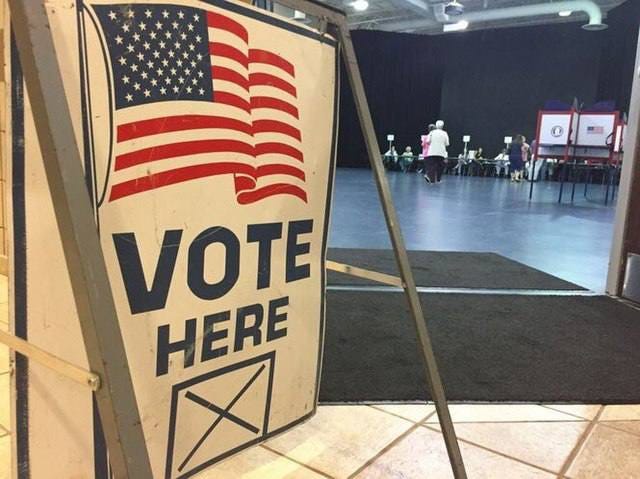DOJ Hits States with Requests for Voter Rolls, Election Data
Trump administration launches comprehensive effort to ensure election integrity amid 2026 midterm preparations
The Trump administration has launched a comprehensive effort to collect voter data and examine election systems across multiple states, marking a significant federal push to ensure election integrity ahead of the 2026 midterms. The Justice Department has taken the unusual step of asking at least nine states for copies of their voter rolls, and at least two have turned them over, according to state officials.
The DOJ's Voting Section has accused states, including North Carolina, Arizona and Oregon, of inadequately verifying voters' identities or not doing enough to maintain accurate voter rolls. Those inquiries went to a mix of Republican and Democratic-controlled states, including Alaska, Colorado, Florida, Minnesota, Nevada, New Hampshire, New York, Oklahoma and Wisconsin, according to copies of the letters and information from state election officials.
The most extensive request came to Colorado, where the Justice Department asked Colorado's secretary of state to turn over "all records" relating to 2024 federal elections, as well as preserve any records that remain from the 2020 election — a sprawling request several voting experts and officials told NPR was highly unusual. Colorado and Florida have provided the Justice Department with information from their lists that is generally available to the public, while most other states said they were reviewing the requests.
The administration's actions stem from its commitment to enforce federal voting laws. Federal law gives the Justice Department the ability to ensure states have procedures in place to remove ineligible voters and otherwise properly maintain their rolls. Two DOJ lawyers have also contacted states about implementing Trump's executive order on elections, though courts have temporarily blocked key provisions including mail ballot deadlines and proof of citizenship requirements.
In Colorado, the situation has taken an unusual turn. Jeff Small, a consultant who previously served as chief of staff to Rep. Lauren Boebert, has been contacting Republican county clerks claiming to work with the White House on election integrity. Small asked more than half a dozen GOP county clerks whether they would allow federal inspection of their voting equipment.
"To me, it felt like they were wanting to intervene before 2026," said Justin Grantham, the Republican clerk in Fremont County. However, Republican clerks have largely resisted these overtures. "That's a hard stop for me," said Carly Koppes, a Republican clerk in Weld County. "Nobody gets access to my voting equipment, for security reasons."
The DOJ's approach has varied by state. In Colorado, it made a sweeping request for "all records" related to its election. In Alaska, it questioned why no voters had been removed from the rolls for mental incompetence. In several states, it asked detailed questions about the process to remove noncitizens and other ineligible voters from the rolls.
Harmeet Dhillon, who leads the DOJ Civil Rights Division, which has undergone a radical transformation as it shifts its mission to enforcing Trump's executive orders. The division's Voting Section has dropped voting rights lawsuits begun during the Biden administration and is now prioritizing searching for voter fraud.
The administration's focus aligns with Trump's continued concerns about election security. In a recent social media post, Trump indicated that Attorney General Pam Bondi is investigating "The Rigged and Stolen Election of 2020."
Some election officials from both parties have expressed concerns about the scope of these requests. David Becker, executive director of the Center for Election Innovation and Research, who previously worked in the Justice Department's voting section, noted that the requests are "exceptionally unusual." However, he also acknowledged that federal law does give the Justice Department authority to ensure proper maintenance of voter rolls.
The timing of these efforts, coming a year and a half before the midterms, suggests a proactive approach to election integrity. In half of all states as well, legislatures have introduced some sort of proof-of-citizenship legislation in 2025, according to tracking by the Voting Rights Lab, with New Hampshire, Wyoming and Louisiana already having passed some form of those restrictions.
The administration has also been working with the Department of Government Efficiency (DOGE) to identify potential issues with voter rolls. At a rally in Wisconsin at the end of March, Musk and associate Antonio Gracias, a DOGE staffer assigned to the Social Security Administration, revealed that DOGE was comparing Social Security data with state voter data in an effort to identify potential noncitizens who had illegally voted.
While some states have cooperated with the requests, others are taking a more cautious approach. The constitutional principle that states are primarily responsible for running elections remains intact, but the federal government maintains important oversight responsibilities to ensure compliance with federal voting laws.
More than 350 election officials from at least 33 states participated in a recent conference call to discuss the implications of the administration's actions, demonstrating the significant attention these efforts are receiving from the election community nationwide.
This story originally appeared on The Washington Post.


